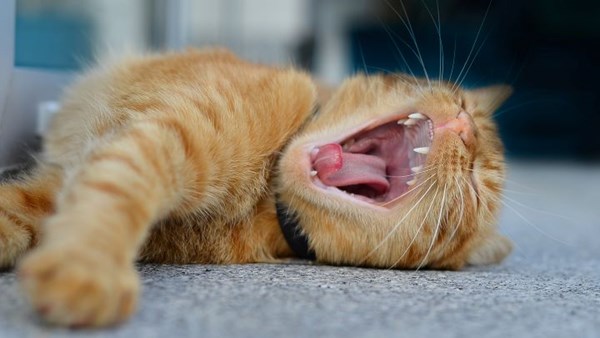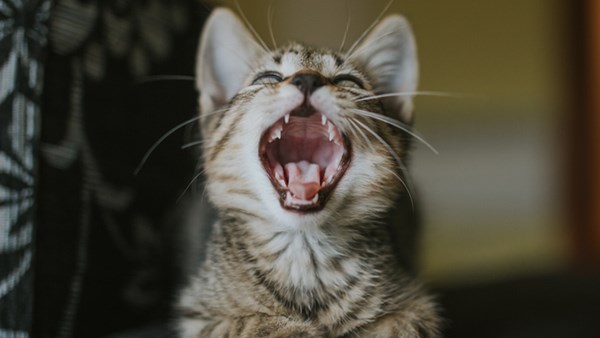How To Look After Your Cats Teeth
Taking care of your cat's teeth is essential. Find out why it's important, and what you can do to improve your cat's dental health.
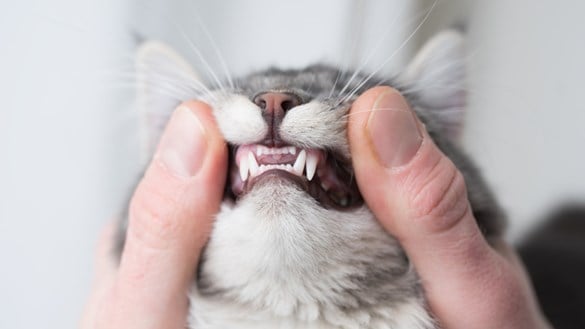
Looking after your cat’s teeth
Unfortunately, dental disease is very common in cats and can cause serious damage.
Prevention is key and taking a few small steps from now on can help improve your cat’s dental health. These include:
- Brushing their teeth with cat-friendly toothpaste (with a small soft brush)
- Providing the right diet
- Regular check-ups with your vet
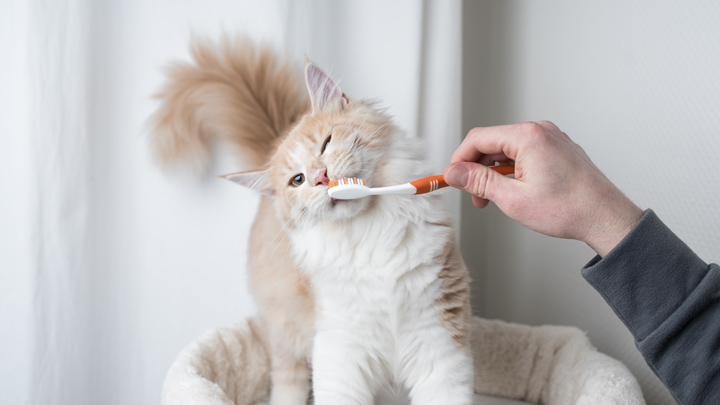
Even the most conscientious of cat owners probably may not have thought about the condition of their cat’s teeth. In fact, a PDSA report indicated that just 35% of cat owners regularly check their cat’s teeth, compared to 81% who regularly check for fleas.
Why do you need to keep your cat’s teeth clean?
The dangers of dental disease
While there are many problems associated with poor dental health, one of the most common in cats is periodontal disease. This begins with a build-up of plaque that when left to harden turns into tartar and causes painful gum inflammation and infection.
This makes eating painful; so a loss of appetite could be an indicator of dental disease. Your cat may also be less willing to groom itself, may lose weight, dribble, paw its mouth or experience behavioural changes.
How to care for your cat’s teeth
Keep their diet healthy
When feeding your cat, it’s worth:
- Avoiding sugary or starchy treats. These encourage bacterial growth in plaque, which releases acid that can cause teeth to decay
- Include dry food as part of the regular feeding routine. This can decrease the development of dental disease in adulthood. That’s because the hard texture of the kibble helps to remove plaque and prevents food and bacteria gathering around the gum line
Brush their teeth
Although not always easy, brushing your cat’s teeth is the most effective method for ensuring they remain clean and plaque-free. There are a variety of pet toothpastes and brushes available. Talk to your vet about what would work best for your cat. It may sound obvious but remember never to use human toothpaste as it’s toxic to animals. Watch our short video on how to brush your cat's teeth.
The best time to attempt brushing your cat’s teeth is after they’ve had sufficient exercise and are calm and relaxed. If your cat becomes agitated and shows signs of stress, don’t continue; start slowly and increase the brushing time every day. Brushing is best done daily.
If you have a new kitten, it’s a really good idea to get them used to having their teeth brushed from an early age. Introducing tooth-brushing to an adult cat is much more difficult.
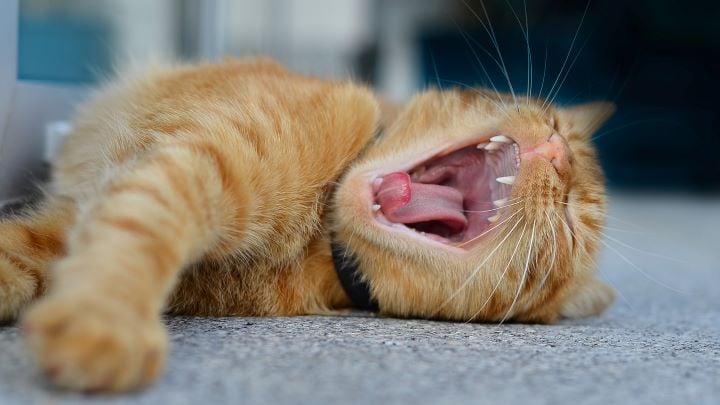
Take them for regular check-ups
Regular check-ups that include your cat’s teeth are the best way to ensure that their teeth stay health and don’t contribute to health issues in later years.



